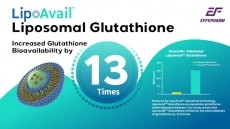NEWS IN BRIEF
EFSA asks for industry views in setting complimentary infant feeding age

The Agency’s draft scientific opinion concludes that most infants do not need complementary foods for nutritional reasons until around 6 months apart from exclusively breast-fed infants at risk of iron depletion.
Other conclusions include a lack of evidence that early introduction of potentially allergenic foods – such as egg, cereals, fish and peanuts – increases the risk of children developing allergies.
The scientific opinion also found no evidence for either beneficial or adverse effects of introducing foods containing gluten earlier than 6 months of age.
The open consultation, which closes 29 May 2019, aims to assess the scientific evidence that looks at whether the introduction of complementary foods before 6 months of age helps or hinders infant development.
Investigating adverse effects or benefits
In addition, the evidence looks to ascertain any link to any adverse effects or benefits associated with the introduction of complementary foods.
The consultation is the action taken following a request from the European Commission. Here, the Panel on Nutrition, Novel Foods and Food Allergens (NDA) draws upon around 300 studies to revise its 2009 Opinion on the appropriate age for introducing complementary infant feeding.
This request also serves to clarify the use of processed cereal-based and baby food in the future as outlined in Regulation (EU) No 609/2013 on food intended for infants and young children.
The consultation states that complementary feeding is defined as the period when complementary foods are given together with either human milk or formula.
“Complementary food in this opinion comprises all liquid, semisolid and solid foods other than breast milk and formula, water and vitamins which are given to infants, and can be beverages, spoon-fed food or finger-food,” it added.
The draft scientific opinion covers 14 outcomes e.g. weight, body mass index, risk of coeliac disease or of atopic diseases or food preferences and eating habits and it was drafted following the methodology of a systematic review.

















